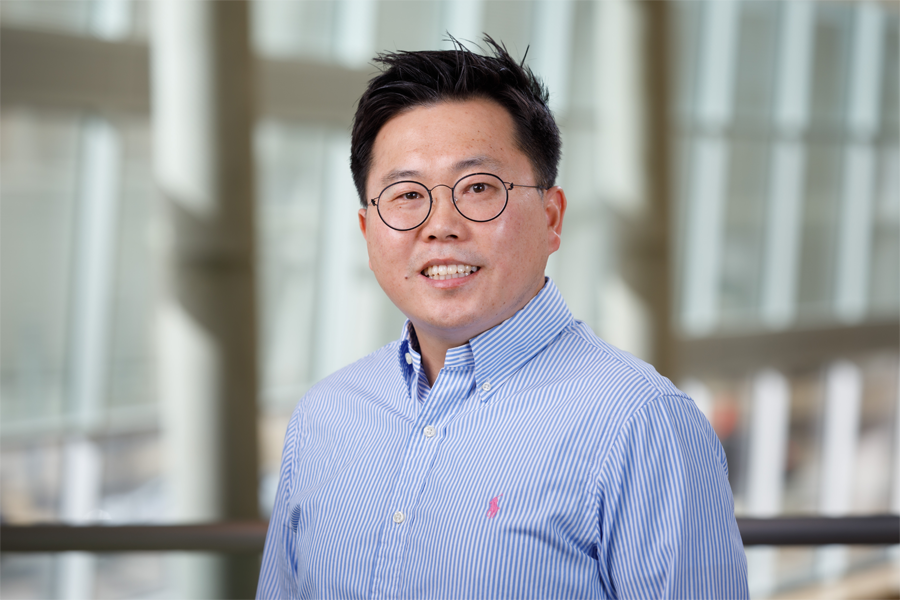Suyong Choi, PhD
Assistant Professor, UNMC Eppley Institute for Research in Cancer and Allied Diseases
Research focus: Novel signaling mechanism, tumor survival, proliferation, metastasis, and chemoresistance in cancer

Suyong Choi, PhD, is a professor in the UNMC Eppley Institute for Research in Cancer and Allied Diseases.
Cancer cells hijack and elaborate several signaling pathways critical for their survival and dissemination. Cancer promoting roles of the phosphoinositide signaling pathway (especially the PI3K-Akt pathway) is well-established, however, its roles in nuclear functions are largely unknown. The Choi lab is working to complement biochemical and cell biological techniques and animal models in cancer biology to be a pioneer in the nuclear phosphoinositide signaling pathway in cancer.
We have an expertise to identify and characterize phosphoinositide binding proteins. These include IQGAP1 (EMBO J, 2013; Nature Cell Biology, 2016), p53 (Nature Cell Biology, 2019; Nature Cell Biology, under revision) and MAP4 (Nature Cell Biology, 2021). Additionally, via proteomic screen and functional validation we have identified several key nuclear proteins including transcription regulators, epigenetic regulators, and DNA repair complexes are regulated by nuclear phosphoinositides.
Roles of phosphoinositide binding with these newly identified nuclear proteins in cancer will be investigated with immediate focuses on the YAP/TAZ pathway regulation by the nuclear phosphoinositide signaling. We highly value active hands-on training and mentoring to promote students develop constructive critical thinking skills to lead their projects.
- BS, Seoul National University, Seoul, South Korea
- MS, Seoul National University, Seoul, South Korea
- PhD, University of Wisconsin-Madison, Department of Pharmacology, Madison, WI
- PostDoc, University of Wisconsin School of Medicine and Public Health, Madison, WI
University of Nebraska Medical Center
986805 Nebraska Medical Center
Omaha, NE 68198-6805